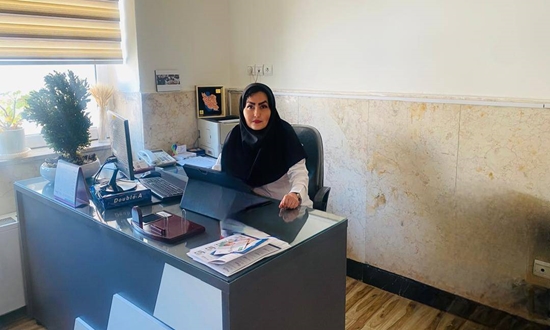Insights from Dr. Ansarinejad on Prevention and Treatment
Promoting Awareness and Early Detection of Breast Cancer

Dr. Nafiseh Ansarinejad, a subspecialist in Hematology and Medical Oncology at Iran University of Medical Sciences, emphasizes that early awareness and regular examinations are crucial for the prevention and effective treatment of breast cancer. In an interview with a university reporter, Dr. Ansarinejad stated that breast cancer is highly treatable when detected in its early stages. She recommends that women begin breast self-examinations at the age of 20 and take annual mammography screenings seriously starting at age 40.
According to the public relations department of Iran University of Medical Sciences, Dr. Ansarinejad highlighted the importance of self-awareness and prevention in combating breast cancer. She advises women to perform monthly self-examinations in front of a mirror, particularly following their menstrual period, to identify any changes in the appearance or texture of their breasts. This simple yet vital practice serves as an initial step toward the early detection of breast cancer.
Dr. Ansarinejad further recommends that women undergo clinical examinations by a general practitioner or gynecologist every one to three years, transitioning to annual examinations starting at age 30. She stresses that all women should have their first mammogram at age 40.
Individuals with a family history of breast, ovarian, or prostate cancer among first-degree relatives are classified as high-risk and should begin screening at an earlier age. Dr. Ansarinejad pointed out that genetic testing for BRCA1 and BRCA2 gene mutations is particularly important in these cases, as early identification of these mutations can help prevent cancer in other family members.
Discussing the factors contributing to breast cancer incidence, Dr. Ansarinejad noted that obesity, physical inactivity, smoking, alcohol consumption, early menstruation, and late menopause are recognized risk factors. She emphasized that maintaining a healthy lifestyle, balanced nutrition, and proper weight management play significant roles in preventing this disease.
Despite the increased risk of breast cancer associated with urban living and daily stressors, Dr. Ansarinejad is optimistic about advancements in treatment and diagnosis. She stated that breast cancer is no longer a leading cause of death among women.
In conclusion, Dr. Ansarinejad affirmed that breast cancer is currently both preventable and treatable, provided that women prioritize their health through regular check-ups and do not hesitate to consult healthcare professionals. Early diagnosis remains the key to successful treatment.


comment